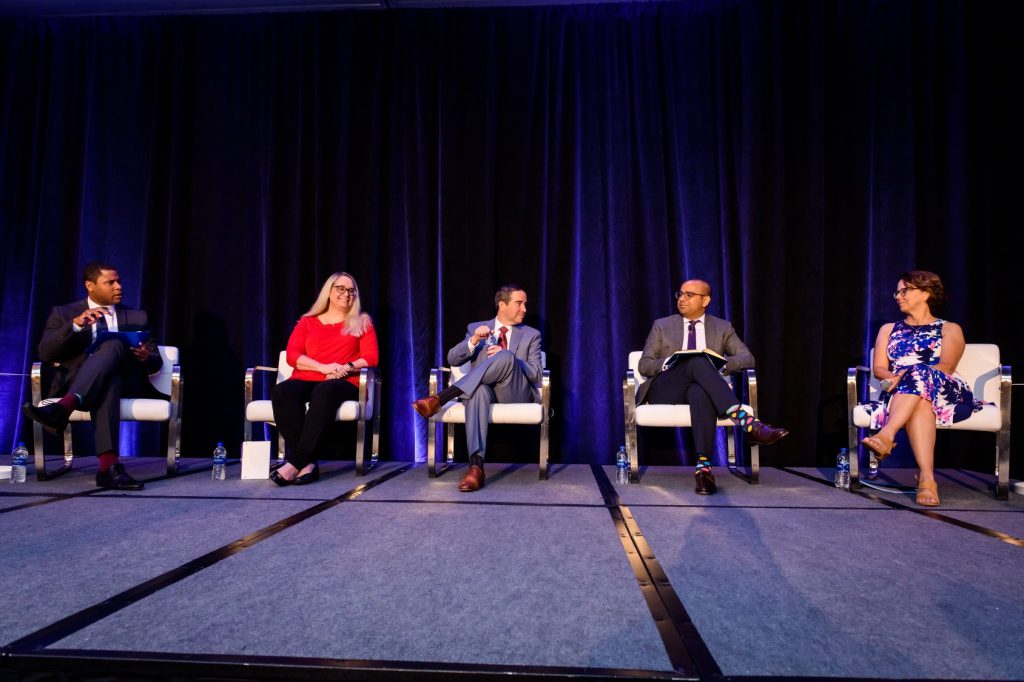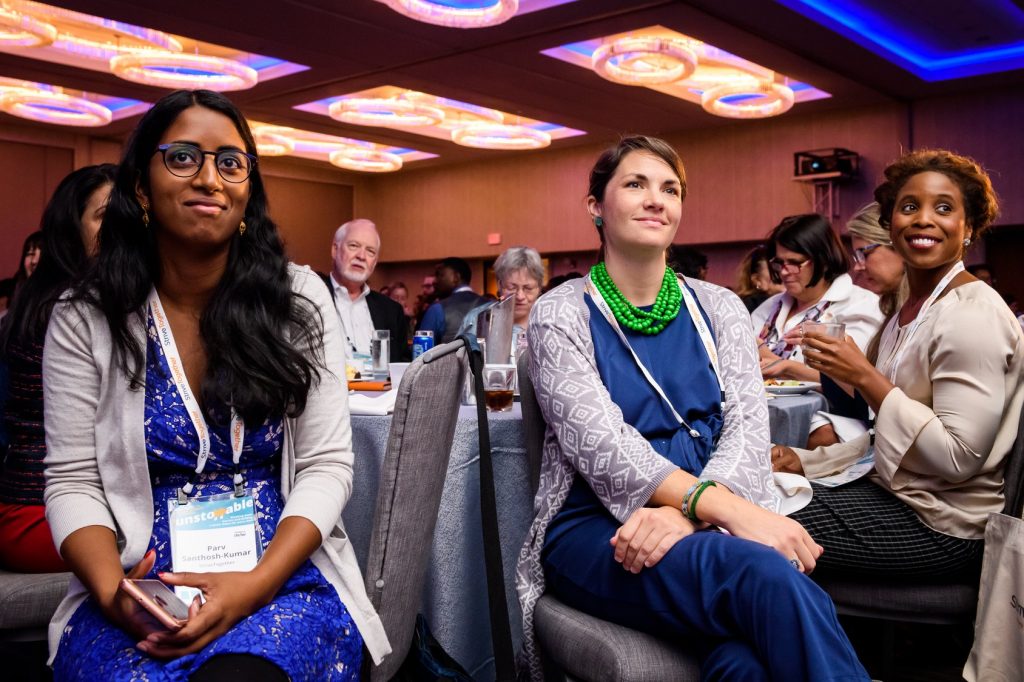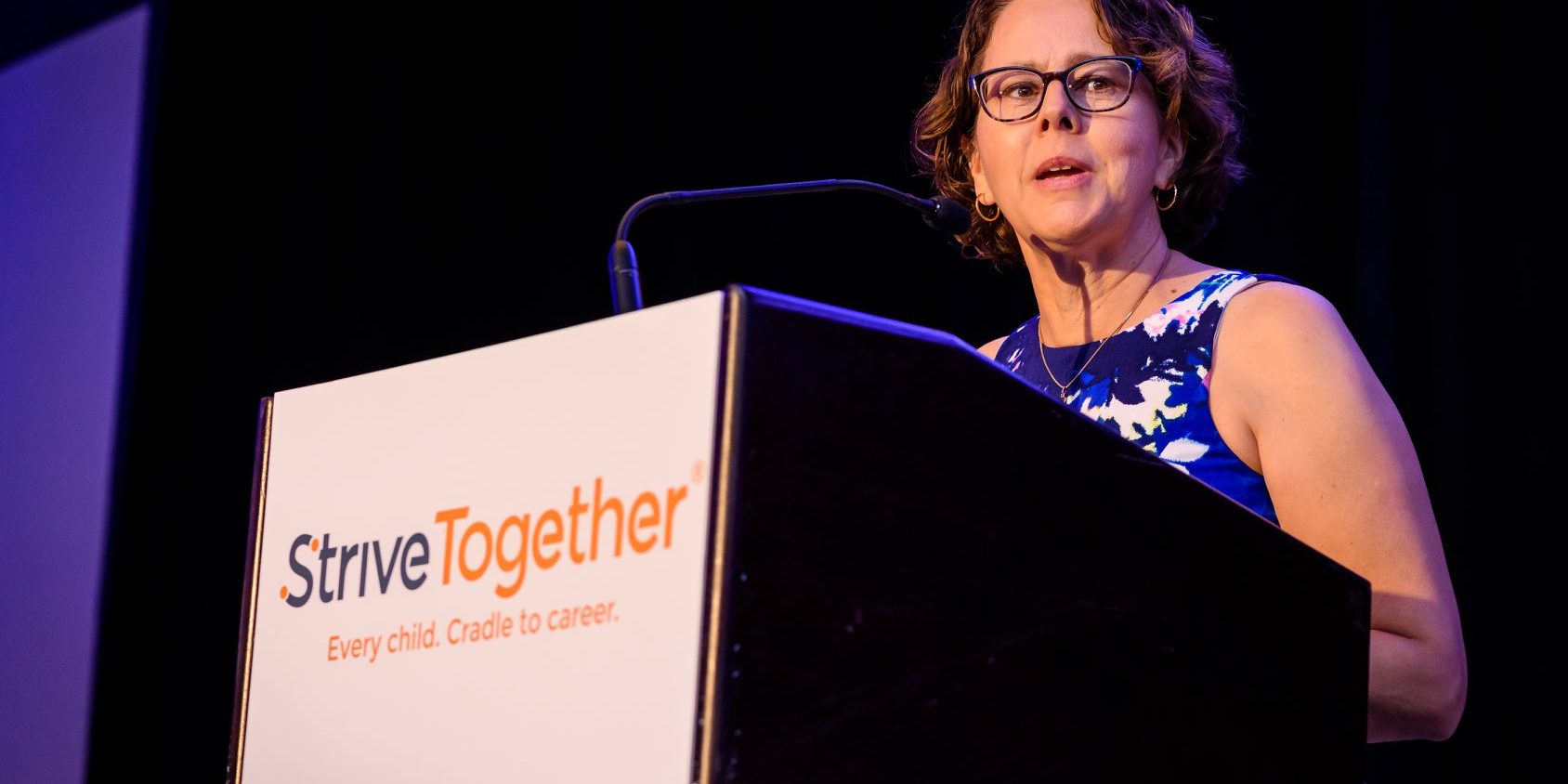Can qualities as simple as common sense and ingenuity be the keys to big policy wins?
On stage at the 2019 Cradle to Career Network Convening sits a panel of leaders from network communities celebrating recent policy successes. Joining them is Cecilia Muñoz, vice president for public interest technology and local initiatives at New America and a former senior staff member in the Obama administration. The panelists’ composure and passion carries the weight of distinctive expertise, yet on this stage, the prevailing narrative seems remarkably simple: Effective policy change, as convoluted and overwhelming as it can seem, can be achieved through a strategic blending of common sense and practical problem solving with communities.
This simplistic perspective is groundbreaking in a time when policy work is hard to conceptualize. Moderated by StriveTogether’s own senior manager of policy and partnerships, Christian Motley, this panel of network members from Kentucky (Partners for Education at Berea College), Texas (The Commit Partnership) and New Mexico (Mission: Graduate) shared that to achieve policy wins, you don’t necessarily have to be a political expert.

Policy change as continuous improvement
Before the panel, in her opening statement, Muñoz introduced something she calls “the new practice of public problem solving.” This concept builds on the idea that the traditional way of working in policy is inefficient and, ultimately, too distant from those it claims to help.
In this new practice of policy, problem solving must exhibit these four characteristics:
- People-centered: It puts people with needs and capabilities at the center of programs and policies using human-centered design.
- Experimental: It starts small and scouts for local solutions, testing ideas and concepts before spreading them nationally.
- Data-enabled: It leverages big data and small data to access problems, monitor progress and evaluate what works.
- Designed to scale: It includes a plan for how to expand and react when scaled
After listing these elements, Muñoz pauses, looking out into the convening audience with a knowing smile. “Sound familiar?” she asks. It does, demonstrated by how the room fills with laughter and head nods. The new practice of public problem solving is similar to the iterative build of the StriveTogether continuous improvement method that network members use to get better results for children and families.
Continuous improvement is the common thread through the panel’s experiences, from the success shared by Sagar Desai from The Commit Partnership of securing over $6.5 billion in education funding, to the work described by Angelo Gonzales from Mission: Graduate to introduce a competition model for school funding that aligns with closing disparity gaps.
Policy change as systems change
Around the room, convening participants lean forward in genuine engagement with the panel, but some have looks of slight skepticism. It’s as if they wonder, “If policy change is continuous improvement, what is the point of doing both? Aren’t strategies enough for real change?” Sensing this curiosity, Muñoz continues discussing the current progress of network members working to close disparity gaps.
“The doing is not enough,” she says. “In order to get to scale, you have to make policy to bring innovation to policy making. As important as it is to improve outcomes in communities, we cannot be done if we are not accomplishing this, for one county or even a whole state.” Shifting from doing to policy making is the heart of the difference between temporary fixes and lasting systems shifts.

Policy changers as strategic empathizers
To achieve policy wins, listening is as important as speaking, according to the panelists. Build connections to turn opposers into allies rather than writing people off because of differences. In Berea, Kentucky, Dreama Gentry says, work is underway to help policy makers listen to the needs of rural communities and to support community members to become local policy makers themselves.
Muñoz reminds the audience that at the end of the day, we are all “innovators and problem solvers and good neighbors.” Yes, she’s referring to all policymakers — even those we disagree with. The challenge is to work together toward results for children and families.
“At the end of the day, everybody is human and they come in the room with interests, loyalties and mental models,” Motley says. He suggests understanding who you’re working with before the conversation begins, so you’re ready to leverage their passions for the results you seek. Using metrics, data, common sense and process design to understand a problem really well to drive for solutions is what policy work is all about. The good news is that the Cradle to Career Network is full of innovators with the tools needed to engage policy work across the country. These tools are common sense, ingenuity and a community full of others who desire success for their children.
As a policy maker, Muñoz has seen innovators in action time and time again. As the panel closes and she looks out at the room of over 500 leaders engaged in this work, she shares words of encouragement: “Change is possible. We can do this, and the reason I know this is because you’re already doing it, every day.”







AWESOME! information shared, excited and anticipating greater impacts in learning and experiences for current and future learners and leaders…..our children.